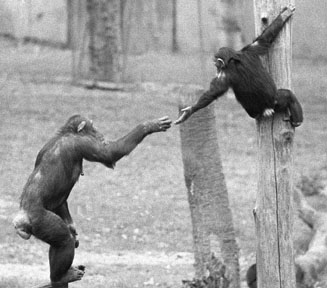Recent Forum Topics › Forums › The Public House › Today's confirmation of DeVos
- This topic has 37 replies, 9 voices, and was last updated 7 years, 2 months ago by
 nittany ram.
nittany ram.
-
AuthorPosts
-
February 7, 2017 at 2:45 pm #65026
 waterfieldParticipant
waterfieldParticipanthttp://www.latimes.com/opinion/readersreact/la-ol-le-betsy-devos-confirmation-20170207-story.html
To me this is the lowest point so far. It proves once and for all how partisan the Republicans can be when it comes to our children and our country. Yes the Democrats voted as a block but clearly they were also voting with sense. This lady knows nothing about public education including the types of tests she will be asked to judge and make recommendations when it comes to how to measure the progress of students. Equally significant is that while 40% of most school budgets go to the needs of children in special education she has no idea about the federal law that mandates what the schools must do to provide for these children. (IDEA) Because of our involvement in this field I watched carefully as much of her confirmation hearings as I could-Believe me -she is a no nothing bimbo when it comes to public education. What has become to our country when we stoop so low?
February 7, 2017 at 3:20 pm #65027 sdramParticipant
sdramParticipantI wrote both of my Republican Senators Thune and Rounds an email note this past few weeks regarding Ms DeVos lack of actual qualifications for this job. They both responded with a bot like auto-email response that they’d take my concerns under advisement. Then, before the vote this morning on the local news I saw that DeVos had “donated” large sums to both them recently. Sheese – wonder how much money I’d have to raise to buy their votes? I know this goes both ways so it’s not a huge surprise. But, she’s not prime time material.
I’m considering what it would take to start a fund me page to buy some votes from these guys. They seem to be open for business these days.
South Dakota public schools have the lowest teacher pay rate in the nation and still manage to produce quite well with among the highest hs grad rates and student achievement rates. Whatever she’s bringing to the table isn’t going to do anything to improve that.
-
This reply was modified 7 years, 2 months ago by
 sdram.
sdram.
February 7, 2017 at 3:43 pm #65029 waterfieldParticipant
waterfieldParticipantMore on DeVos. http://www.latimes.com/opinion/editorials/la-ed-betsy-devos-senate-confirmation-20170207-story.html
Every single Republican who has a child with special needs should not only be alarmed but should now be aware just how low her party has become.
February 7, 2017 at 7:42 pm #65033 wvParticipant
wvParticipantSo thats the new low-point is it? 🙂
Well it will be interesting — four years from now — to chart all the cascading ‘low points’ of the Trump term.
Can you imagine what that chart will look like?
w
vFebruary 7, 2017 at 8:09 pm #65036 wvParticipant
wvParticipantI wrote both of my Republican Senators Thune and Rounds an email note this past few weeks regarding Ms DeVos lack of actual qualifications for this job. They both responded with a bot like auto-email response that they’d take my concerns under advisement. Then, before the vote this morning on the local news I saw that DeVos had “donated” large sums to both them recently. Sheese – wonder how much money I’d have to raise to buy their votes? I know this goes both ways so it’s not a huge surprise. But, she’s not prime time material.
I’m considering what it would take to start a fund me page to buy some votes from these guys. They seem to be open for business these days.
South Dakota public schools have the lowest teacher pay rate in the nation and still manage to produce quite well with among the highest hs grad rates and student achievement rates. Whatever she’s bringing to the table isn’t going to do anything to improve that.
===============
Maybe you better send more letters:w
vFebruary 7, 2017 at 8:30 pm #65037 MackeyserModerator
MackeyserModeratorEvery vote like this is going to just kill the Reps in 2018. Trust me, people are keeping track.
This is called “taking enough rope to hang themselves”. I mean we’re not even in the position to give it to them. They’re taking it.
The ONLY thing that can stop that is if the Dems go all “super cute DLC”.
If they just stick with traditional ground game, progressive stuff… ya know… run 3 times at the 22 to go up by 11, then game over.
If the Dems don’t screw this up, they have the chance to not only take back the Senate, but potentially take the House. We’re talking landslide stuff here.
But.. BUT… the Dems can’t let Pelosi, Schumer and the DLC Dems fuck it up.
And so help me, DWS needs to eat shit. Fuck her AND her sticking up for Pay Day Lenders.
I feel like Animal from the Muppets…. pretty good on the drums, but not great at dinner parties…
Sports is the crucible of human virtue. The distillate remains are human vice.
February 7, 2017 at 8:49 pm #65038 znModerator
znModeratorYeah, another low point.
But then it’s not like education is that important.
Sigh.
February 8, 2017 at 9:59 pm #65065 ZooeyParticipant
ZooeyParticipantWell, as I said in the thread on Bannon, I am not as concerned about her lack of qualifications as I am by her intentions. Her lack of qualifications is good news compared to her intentions.
Imagine if she knew what she was doing from day one.
As it is, she is going to have a learning curve that may help us. She may try to just roll out all kinds of wacko shit like Trump has, and get hung up on the illegality of it which could give people enough time to notice what she is doing, and rally to stop it.
February 8, 2017 at 11:01 pm #65069 waterfieldParticipant
waterfieldParticipantShe may try to just roll out all kinds of wacko shit like Trump has, and get hung up on the illegality of it which could give people enough time to notice what she is doing, and rally to stop it.
Do you really think people care Zooey? Most-if not all -of my Republican friends think the DOE is just some small agency somewhere. To them the big picture is all about lowering taxes-especially on corporations so we can get on with the economy. And these people are not stupid people-uninformed yes-but not stupid. And of course they have long since had no children. They may have grand kids but their education is simply not on their radar. Depressing.
On a good note: the nominee for SC justice, in response to Trump’s bullying the independence of the judiciary, said it was demoralizing and disheartening, to hear the President’s attack.
-
This reply was modified 7 years, 2 months ago by
 waterfield.
waterfield.
February 9, 2017 at 10:19 am #65094 ZooeyParticipant
ZooeyParticipant<
Do you really think people care Zooey?I doubt it. I think people care about things that personally impact them. So people whose kids are out of the nest aren’t going to worry much about education. Childless people won’t concern themselves about it. Families with their kids going to private schools aren’t going to defend the system. You know.
And then there are quite a few people who are using public education who sense something is very wrong with it, and they aren’t going to defend it, either.
But, then, there are some families who take the education of their children very seriously, are actively involved in supporting the school, and they care. I mean…I have parents whose kids have graduated and moved away who still come to help out with our theatre productions because they feel so grateful about how the experience in theatre impacted their kid’s life. There are people. A lot of people. Enough, I think, if they are made aware of what is at stake. That’s just the key to everything, though, isn’t it? Getting people to understand issues beyond bumpersticker slogans.
On NPR this morning, I heard a guy say, “I think Trump MEANS well, and wants to do the right thing for our country, not just pro-life, but about jobs and everything….” That’s what the guy said. And I think that represents his support generally speaking. They may not approve of his public ugliness, but they are willing to put up with that (since they are largely unaffected by it) because they sense something is wrong, Trump agrees with them, and he’s a billionaire, so he knows what he is doing. It’s that simple, I think. They are the “something’s gotta change” crowd.
Well, when that something that changes is they lose their health coverage, or their school starts losing teachers due to layoffs or teachers quitting, and the classrooms deteriorate, they are gonna react to that. The question for me is “How much damage will be done before people realize they’ve been conned?”
February 9, 2017 at 3:02 pm #65108 waterfieldParticipant
waterfieldParticipantI think people care about things that personally impact them.
I wonder if people have always been that way. Maybe I’m wrong but it seems to me that somewhere along the way we-as parents-have failed to show and teach our children how important it is to care about others-especially those less fortunate. The real problem as I see it is that parents that actually do this are becoming fewer and fewer. Those that don’t are becoming more and more.
February 9, 2017 at 3:38 pm #65110 joemadParticipant
joemadParticipantMac Said
Every vote like this is going to just kill the Reps in 2018. Trust me, people are keeping track.
Waterfield Said:
Most-if not all -of my Republican friends think the DOE is just some small agency somewhere.
Zooey Said
I think people care about things that personally impact them.
1) MAC I don’t think people will keep track very long… very short memories. The majority of folks that I know that voted for Trump don’t realize or forgot how much of a mess the country was in when Obama took over, on the brink of economic depression, the US$ was in the tank, unemployment was high, if was a complete mess…… I ask people that complain about Obama, “what did Barry do in the past 8 years that affected you in a negative way?” they have no valid answer, in fact, some of these voters benefited from getting out of their foreclosures and ended up with new homes in the past 6 years and they still think democrats are bullshit….
When they tell me that they voted for Trump over HRC after Trump was the biggest ass on the campaign trail, they bring up Clinton corruption and email BS. I reply, the FBI doesn’t fuck around and will bust people as warranted, but they don’t get it. They don’t care that Trump U was a fraud, they don’t care that he went bankrupt 6 times, they don’t care that he grabbed pussy and marred a commie’s daughter… they don’t care….
2) Waterfield is right, these people think president’s cabinet is something you install in your kitchen or bathroom.. they have no friggen clue…..they think Devos wrote and sang “WHIP IT”
3) It’s gonna take a big fucking impact like the great recession of 2007… they don’t like women in charge and they don’t like minorities in charge, you can’t reason with these people, they blame ISIS in Obama and have no clue that Bush invaded the wrong country that spawned a lot of this mess.
I mean how could Bush II win a second term against Kerry?
Savage, Rush, Hannity and these right wing hacks successfully did their job and with explosion of social media, these people are getting news based on their ideals…..
These right wing voters are more loyal to the party than we are to the RAMS after 13 losing seasons…….at least we complain and are very critical about the Rams inept performances, these voters RARELY, IF EVER are critical of the people they voted for…..
-
This reply was modified 7 years, 2 months ago by
 joemad.
joemad.
February 9, 2017 at 3:41 pm #65112 Billy_TParticipant
Billy_TParticipantI think people care about things that personally impact them.
I wonder if people have always been that way. Maybe I’m wrong but it seems to me that somewhere along the way we-as parents-have failed to show and teach our children how important it is to care about others-especially those less fortunate. The real problem as I see it is that parents that actually do this are becoming fewer and fewer. Those that don’t are becoming more and more.
Waterfield,
I don’t think it’s the absence of teaching children to care about others at issue here. I think it’s the presence of society teaching people to compete against each other, relentlessly, by any means necessary.
We’re born with strong instincts for compassion, sharing, caring and empathy toward others. That’s our default position growing up, before this is beaten out of us. The core desire to share has been noted in a slew of recent studies of children, and it’s been shown to actually make the very young angry when their playmates don’t receive equal portions of food or toys, etc. etc. Little kids will go so far as to demand that extra servings or extra toys be tossed out of the room to avoid inequality.
This innate sense of fairness is beaten out of us over time. We have strong internal desires to work together and share what we have, physically and emotionally.
In my view, the bulk of the problem is that we, the masses, have been taught malevolent philosophies over time — in the modern world the worst being that capitalism is the only “natural” economic order — and who teaches us these things? The tiny percentage of humans who actually are “naturally” self-centered little shits, who then try to project their own sociopathology onto the rest of us.
It doesn’t fit us “naturally” in any way, shape or form, but we humans are built to adapt, so it becomes artificially “natural” for us too.
In reality, that “self-interest above all else” is only natural for a tiny percentage. For everyone else, it’s a social construct, and a terribly damaging one.
February 9, 2017 at 3:53 pm #65115 Billy_TParticipant
Billy_TParticipantIt’s interesting that in the 19th century most Russian evolutionists believed humans evolved/survived for far different reasons than the Western, vulgar Darwinists. The Russians thought we humans banded together, worked collectively to benefit each other, unified to fight against common threats against our survival, most of them coming from the natural world, not one another. We survived due to cooperative behavior. If we had been all about competition, we wouldn’t have made it.
The vision from the West is based far more on competition, and gives very little credit to cooperation.
Two recent books tripped the wires for me regarding this: Yuval Harari’s Sapiens and Kristin Ross’s Communal Luxury. The latter actually talks directly about those Russian scientists, while the former makes the much broader case that humans evolved and survived because we banded together, cooperatively, and because we, unlike any other mammal before us, extended the range of cooperation due to the invention and acceptance of fiction.
I took from both accounts that the vulgar Darwinists were likely heavily influenced by the rise of capitalism itself, and read back far too much into our ancient past based on the competitive laws of motion inherent in the fairly new economic system for their day.
IMO, we in America and the West in general are victims of this false view of “human nature” being dominated by competition. Our 250,000 year history doesn’t support that view.
-
This reply was modified 7 years, 2 months ago by
 Billy_T.
Billy_T.
February 9, 2017 at 6:18 pm #65121 wvParticipant
wvParticipantIMO, we in America and the West in general are victims of this false view of “human nature” being dominated by competition. Our 250,000 year history doesn’t support that view.
——————-
I have always liked zack’s words on ‘human nature’. Ie, the idea that whatever it is, its purty damn ‘flexible’. It encompasses the ‘competition’ part and the ‘cooperation’ part, etc. Its all kinda plastic. So we can adapt and we can be ‘shaped’ by stuff, etc.
We have come so far as living entities. Ya know. I mean we’ve gone from asexual one-celled division to…Presidential tweeting. In just a few billion years.
w
vFebruary 9, 2017 at 6:32 pm #65123 Billy_TParticipant
Billy_TParticipantIMO, we in America and the West in general are victims of this false view of “human nature” being dominated by competition. Our 250,000 year history doesn’t support that view.
——————-
I have always liked zack’s words on ‘human nature’. Ie, the idea that whatever it is, its purty damn ‘flexible’. It encompasses the ‘competition’ part and the ‘cooperation’ part, etc. Its all kinda plastic. So we can adapt and we can be ‘shaped’ by stuff, etc.
We have come so far as living entities. Ya know. I mean we’ve gone from asexual one-celled division to…Presidential tweeting. In just a few billion years.
w
vI agree that we are “flexible” to a point. But my POV is that I think the West has been shaped by a fiction that tells us “the survival of the fittest” is always in play. The East was taught a completely different fiction, one far more “cooperative” in nature and where seeking harmony with one’s surroundings and village and state was promoted. Ours tends to promote the fiction that we are always already at war with each other, our environment, etc. etc.
Logically, there’s a mix. But it’s also logical to me that if we really had evolved according to the war against all hypothesis, we never would have survived, even the fittest among us. After awhile, the environment itself would have crushed all of those lonely intrepid ur-John Galts.
So, for me, it’s logical that the mix has always leaned toward the cooperative, and as David Graeber shows in his Debt: The First 5000 years, even in our hyper-competitive capitalist world, we still can’t survive without a ton of cooperation — at work, in our neighborhoods, between nations, etc. etc. I agree with him that we’re all “natural” small “c” communists, and we prove that on a daily basis within family units, among neighbors, even at work as we help each other without asking for remuneration.
Again, I think it’s only ever been the alphas and the sociopaths who were/are the exemplars of Social Darwinism. They’re really the only people who think solely of themselves and their own interests. The vast majority of us — I’d say roughly 95% — just want to get along, eat, drink, be merry and make love not war. Which means while we’re certainly “flexible,” it’s a hell of a lot harder to teach us to go to war against one another than to teach us to live in peace.
But it’s not profitable for those alphas and those sociopaths, so we’re taught a different kind of (malevolent) fiction, one diametrically opposed to our true best interests.
That’s my take, anyway.
February 9, 2017 at 6:44 pm #65125 waterfieldParticipant
waterfieldParticipantI think it’s the presence of society teaching people to compete against each other, relentlessly, by any means necessary.
We’re born with strong instincts for compassion, sharing, caring and empathy toward others.
Oh I don’t think we’re born with compassion, sharing, caring and empathy to others-at all Billy Babies are the most selfish living things around. It’s not “instinctual” at all. As infants they are no different than one of a litter of puppies who pushes the others away from the mother’s milk.
We humans learn to be “compassion, sharing, caring, and empathy to others-or we don’t ! And if we don’t I’m not going to blame “society”. It starts and ends with parents. I’m not about to blame society on all our human frailties -to me that’s a cynical excuse for behavior and the sign of a person who simply hates the “society” he lives in and finds it to be the origin of all that is wrong including uncaring adults who have no compassion for others.
The real sadness for me is the number of parents who do not -and often cannot-pass on the basic values of compassion toward others-simply because no one passed them on to them. Which brings me back to full circle and my prime concern-that people that should be having children are not and those that should not are. End of story-for me anyway.
-
This reply was modified 7 years, 2 months ago by
 waterfield.
waterfield.
February 9, 2017 at 6:50 pm #65127 znModerator
znModeratorOh I don’t think we’re born with compassion, sharing, caring and empathy to others-at all Billy Babies are the most selfish living things around. It’s not “instinctual” at all.
Yeah it is, W. Human infants are among the only animals on the planet who respond sympathetically to pain inflicted on others, for example.
Being a dependent infant is not so much “selfish” as it is just simply that, physical dependency. In fact compared to other mammals, relative to overall lifespan ratios, human infants are THE most dependent largely because they are, in effect, compared to other mammals, born prematurely and have a much longer span of absolute dependency built into their development.
That is not the same thing as becoming an adult who lacks empathetic connection or a sense or cooperative action. When we attack adults for bad behavior, we often say they are acting like a baby–that is, you’re supposed to transcend that kind of absolute self-centered dependency. That’s what we mean by maturing.
At the same time, yes, psychologically, all kinds of social structures are built into infants that lend themselves to empathetic and cooperative connection. It’s just there, it has been found and studied.
February 9, 2017 at 7:35 pm #65131 waterfieldParticipant
waterfieldParticipantNot sure I want to debate this but I can tell you from being a parent and a grand parent my experience is that infants are the most narcissistic creatures around. Here is a Stanford study on how infants learn to be selfless and are not born that way.
http://www.parents.com/blogs/baby/2015/01/07/news/are-babies-born-selfish/
February 9, 2017 at 7:57 pm #65132 znModerator
znModeratorNot sure I want to debate this but I can tell you from being a parent and a grand parent my experience is that infants are the most narcissistic creatures around. Here is a Stanford study on how infants learn to be selfless and are not born that way.
http://www.parents.com/blogs/baby/2015/01/07/news/are-babies-born-selfish/
I’m a parent too. Along with being the child of a developmental psychologist.
W, no offense intended…but you can’t respond to EVERYTHING by saying “well from what I have personally seen….”
This is a fact—the psychology of infants and children points to empathetic structures in even developing minds. That’s years of exhaustive study that goes way beyond what you think you personally know. And from what I have read, advanced empathetic structures start to emerge around 4 or 5 years old. There are even signs of it in 12 month old infants.
So remember, much more than other mammals, we are born in effect premature and so definitely incomplete. Our brains and selves aren’t even formed yet. We actually DEVELOP and that means the brain develops.
So no you can’t generalize about humans from infant behavior that way. Human behavioral mechanisms actually develop with the brain.
.
February 9, 2017 at 10:37 pm #65137 waterfieldParticipant
waterfieldParticipant“advanced empathetic structures start to emerge around 4 or 5 years old. ”
You won’t get any argument from me there since that’s not my point. I too studied a lot of this stuff in both undergraduate and graduate school. While the brain “develops” the capacity to learn complex social matters such as compassion, etc it does not incorporate these values organically. That is learned behavior.
My point in all this is a rebuttal to Billy’s point that our society is at the root of our failures. I will give Billy this much: If there is no parental leadership in the formation of values then children will always become victims to societal narcissism. At that point You can overthrow our form of government and replace it with whatever but IMO there will be no change at all in terms of how we treat and respect people less fortunate than ourselves without and until we begin to teach our children what it truly means to be compassionate to other.
Billy is right. We live in a narcissistic society. But IMO its not because of our form of government but far more because that is how our children have either been taught or simply not taught.
I respect Billy and WV-these are the people that should be having children but unfortunately are not.
February 9, 2017 at 10:47 pm #65139 Billy_TParticipant
Billy_TParticipant“advanced empathetic structures start to emerge around 4 or 5 years old. ”
You won’t get any argument from me there since that’s not my point. I too studied a lot of this stuff in both undergraduate and graduate school. While the brain “develops” the capacity to learn complex social matters such as compassion, etc it does not incorporate these values organically. That is learned behavior.
My point in all this is a rebuttal to Billy’s point that our society is at the root of our failures. I will give Billy this much: If there is no parental leadership in the formation of values then children will always become victims to societal narcissism. At that point You can overthrow our form of government and replace it with whatever but IMO there will be no change at all in terms of how we treat and respect people less fortunate than ourselves without and until we begin to teach our children what it truly means to be compassionate to other.
Billy is right. We live in a narcissistic society. But IMO its not because of our form of government but far more because that is how our children have either been taught or simply not taught.
I respect Billy and WV-these are the people that should be having children but unfortunately are not.
No, Waterfield. It’s innate. It’s organic. It’s built in. We are born with the ability to be compassionate, empathic, and empathetic — naturally. Study after study shows this.
http://greatergood.berkeley.edu/article/item/the_compassionate_instinct
Excerpt:
Recent studies of compassion argue persuasively for a different take on human nature, one that rejects the preeminence of self-interest. These studies support a view of the emotions as rational, functional, and adaptive—a view which has its origins in Darwin’s Expression of Emotion in Man and Animals. Compassion and benevolence, this research suggests, are an evolved part of human nature, rooted in our brain and biology, and ready to be cultivated for the greater good.
The biological basis of compassion
First consider the recent study of the biological basis of compassion. If such a basis exists, we should be wired up, so to speak, to respond to others in need. Recent evidence supports this point convincingly. University of Wisconsin psychologist Jack Nitschke found in an experiment that when mothers looked at pictures of their babies, they not only reported feeling more compassionate love than when they saw other babies; they also demonstrated unique activity in a region of their brains associated with the positive emotions. Nitschke’s finding suggests that this region of the brain is attuned to the first objects of our compassion—our offspring.
But this compassionate instinct isn’t limited to parents’ brains. In a different set of studies, Joshua Greene and Jonathan Cohen of Princeton University found that when subjects contemplated harm being done to others, a similar network of regions in their brains lit up. Our children and victims of violence—two very different subjects, yet united by the similar neurological reactions they provoke. This consistency strongly suggests that compassion isn’t simply a fickle or irrational emotion, but rather an innate human response embedded into the folds of our brains.
In other research by Emory University neuroscientists James Rilling and Gregory Berns, participants were given the chance to help someone else while their brain activity was recorded. Helping others triggered activity in the caudate nucleus and anterior cingulate, portions of the brain that turn on when people receive rewards or experience pleasure. This is a rather remarkable finding: helping others brings the same pleasure we get from the gratification of personal desire.
The brain, then, seems wired up to respond to others’ suffering—indeed, it makes us feel good when we can alleviate that suffering. But do other parts of the body also suggest a biological basis for compassion?
February 9, 2017 at 11:01 pm #65140 Billy_TParticipant
Billy_TParticipantThis is another article from the same website. This time on empathy. Note that this has been found in other primates, who, obviously have no ethic, philosophical or religious training, no “schools,” etc. etc.
Excerpt:
Animal empathy
It is hard to imagine that empathy—a characteristic so basic to the human species that it emerges early in life, and is accompanied by strong physiological reactions—came into existence only when our lineage split off from that of the apes. It must be far older than that. Examples of empathy in other animals would suggest a long evolutionary history to this capacity in humans.
Evolution rarely throws anything out. Instead, structures are transformed, modified, co-opted for other functions, or tweaked in another direction. The frontal fins of fish became the front limbs of land animals, which over time turned into hoofs, paws, wings, and hands. Occasionally, a structure loses all function and becomes superfluous, but this is a gradual process, and traits rarely disappear altogether. Thus, we find tiny vestiges of leg bones under the skin of whales and remnants of a pelvis in snakes.
Over the last several decades, we’ve seen increasing evidence of empathy in other species. One piece of evidence came unintentionally out of a study on human development. Carolyn Zahn-Waxler, a research psychologist at the National Institute of Mental Health, visited people’s homes to find out how young children respond to family members’ emotions. She instructed people to pretend to sob, cry, or choke, and found that some household pets seemed as worried as the children were by the feigned distress of the family members. The pets hovered nearby and put their heads in their owners’ laps.
But perhaps the most compelling evidence for the strength of animal empathy came from a group of psychiatrists led by Jules Masserman at Northwestern University. The researchers reported in 1964 in the American Journal of Psychiatry that rhesus monkeys refused to pull a chain that delivered food to themselves if doing so gave a shock to a companion. One monkey stopped pulling the chain for 12 days after witnessing another monkey receive a shock. Those primates were literally starving themselves to avoid shocking another animal.

Cognitive empathy, where one understands the other’s situation, enables helping behavior that is tailed to the other’s specific needs. In this case, a mother chimpanzee reaches to help her son out of a tree after he screamed and begged for her attention. Cognitive empathy, where one understands the other’s situation, enables helping behavior that is tailed to the other’s specific needs. In this case, a mother chimpanzee reaches to help her son out of a tree after he screamed and begged for her attention. Frans de WaalThe anthropoid apes, our closest relatives, are even more remarkable. In 1925, Robert Yerkes reported how his bonobo, Prince Chim, was so extraordinarily concerned and protective toward his sickly chimpanzee companion, Panzee, that the scientific establishment might not accept his claims: “If I were to tell of his altruistic and obviously sympathetic behavior towards Panzee, I should be suspected of idealizing an ape.”
-
This reply was modified 7 years, 2 months ago by
 Billy_T.
Billy_T.
February 9, 2017 at 11:12 pm #65142 Billy_TParticipant
Billy_TParticipantbtw, Waterfield,
I’m not saying we’re wired only for compassion, empathy, etc. etc. We have conflicting wiring as well. But it is there, biologically, genetically.
Think of it in the same way Michelangelo thought of his art. He looked at a huge slab of rock and saw his finished piece of sculpture already inside that huge slab of rock. All he needed to do was to get to it.
We as a society just need to activate what is already inside us, when it comes to things like compassion, empathy, reciprocal altruism, etc — and not beat it out of our kids over time. It’s there, inside the rock. We’re all born with — with few exceptions — the golden rule inside us, naturally. But, IMO, our economic system, and the State that protects it, defends it, bails it out, goes to war for it, etc. makes it a thousand times more difficult to unlock our potential for compassion, empathy, etc. etc. Our economic system teaches the opposite, and the State supports this.
-
This reply was modified 7 years, 2 months ago by
 Billy_T.
Billy_T.
February 9, 2017 at 11:44 pm #65145 waterfieldParticipant
waterfieldParticipantWe are born with the ability to be compassionate, empathic, and empathetic
Of course we are born with the “capacity” . That is what differentiates us from other creatures. My point is we are not born “compassionate”. We learn -hopefully-how to become such with the tools we have been given at birth. And of course if we don’t learn from our parent(s) we are in a vacuum and then we succumb to societal pressures as to “values” be that in the form of governmental values, political values,peer values, whatever. In that respect you and I are likely in agreement. However, if our values are learned from our parents, it doesn’t matter what type of society we live in-we will be less tolerant of the ills caused upon the less fortunate-if in fact those are the values given to us by our parents.
A Ram illustration: My wife tells a story told to her by an engineer she used to work with when she worked on the Lunar Module project at TRW. He told her that he had season tickets to the Rams-Coliseum days. He would take his son-early Sunday game days-and drive through south central L.A.-only for the purpose of pointing out that even though they live in a nice home in Palos Verdes there were thousand of children less fortunate. He did that every Sunday so his son would understand. As I understand it his son is now a very bright lawyer for the ACLU.
As far as being sympathetic to the ills of society we learn it and no form of government-be it capitalism, socialism, communism, will ever teach us that. We either “learn” it or we don’t.
February 10, 2017 at 12:04 am #65146 Billy_TParticipant
Billy_TParticipantWe are born with the ability to be compassionate, empathic, and empathetic
Of course we are born with the “capacity” . That is what differentiates us from other creatures. My point is we are not born “compassionate”. We learn -hopefully-how to become such with the tools we have been given at birth. And of course if we don’t learn from our parent(s) we are in a vacuum and then we succumb to societal pressures as to “values” be that in the form of governmental values, political values,peer values, whatever. In that respect you and I are likely in agreement. However, if our values are learned from our parents, it doesn’t matter what type of society we live in-we will be less tolerant of the ills caused upon the less fortunate-if in fact those are the values given to us by our parents.
A Ram illustration: My wife tells a story told to her by an engineer she used to work with when she worked on the Lunar Module project at TRW. He told her that he had season tickets to the Rams-Coliseum days. He would take his son-early Sunday game days-and drive through south central L.A.-only for the purpose of pointing out that even though they live in a nice home in Palos Verdes there were thousand of children less fortunate. He did that every Sunday so his son would understand. As I understand it his son is now a very bright lawyer for the ACLU.
As far as being sympathetic to the ills of society we learn it and no form of government-be it capitalism, socialism, communism, will ever teach us that. We either “learn” it or we don’t.
We just disagree about most of this, W. I don’t think children need to be taught compassion at all. We can teach them how to direct and extend the compassion they’re already born with. But it doesn’t need to be “taught.” As long as we don’t screw them up with ugly messages that it’s “human nature” to be cruel to one another, that it’s a “dog eat dog world,” that everyone is out for themselves, there’s nothing for them to “learn” along those lines, other than to help refine and direct their compassion, empathy, etc. etc.
Expose them to as much of the world, as much of its diversity, as much of its art, etc. etc. as is humanly possible so their moral compasses are expanded . . .
One can quibble in a circular kind of way that we are naturally empathetic, compassionate and generous toward others perhaps because it makes us feel good to be just that — and studies show that it really does. It fires up the pleasure areas of our brains, big time. But that’s still a innate drive. That still means the drive is already there at birth, as are the wonderful chemical reactions. We inherit this, genetically, and as the article above shows, we share this with other primates.
And, to me, the kind of economic and governmental system in place is critical. That system can crush or empower our innate desires to be generous, kind, giving, caring, etc. etc. Some systems just flat out do better than others in promoting or suppressing these things. IMO, that’s just self-evident.
February 10, 2017 at 1:35 am #65147 waterfieldParticipant
waterfieldParticipantAnd, to me, the kind of economic and governmental system in place is critical. That system can crush or empower our innate desires to be generous, kind, giving, caring, etc. etc.
I don’t think the desire to be generous, kind, giving, ect. is “innate” at all. I’m not sure you have children Billy ( I’m betting you don’t) but if you have I suspect you would agree with me on this. That’s stuff we learn from either our parent(s) or from others. Otherwise it’s open to the notion that whatever “innate goodness” we have is or can be “crushed” as you say by the government. Knowing your philosophical bent and your intelligence I’m sure you are familiar with Frankl”s “Man Search for Meaning.” The essential point of the book was that if one has values that have been embedded within him from years of leaning–in his case his parents-they cannot be “crushed” by the government-in his case the Nazis.
So we likely disagree. Or maybe we don’t. But it’s been an interesting discussion at least. And I would like to retire knowing that the Ninth Circuit has at least temporarily stopped this immigration nonsense-at least for now.
February 10, 2017 at 2:48 am #65148 znModerator
znModeratorI don’t think the desire to be generous, kind, giving, ect. is “innate” at all. I’m not sure you have children Billy ( I’m betting you don’t) but if you have I suspect you would agree with me on this.
I bet all the psychologists who did the studies we’re citing have children.
=====
Child development
Sympathy is a stepping stone in both social and moral development. It generally arises between 2–3 years old, although some instances of empathic emotion can be seen as early as 18 months. Basic sharing of emotions, a precursor for sympathy, can be seen in infants. For example, babies will often begin to cry when they hear another baby crying nearby. This emphasizes the infant’s ability to recognize emotional cues in his or her environment, even if not able to fully comprehend the emotion. Another milestone in child rearing is the development of the ability to mimic facial expressions. Both of these processes act on sensory and perceptual pathways, yet executive functioning for empathic emotions does not begin during these early stages. Decety and Michalska (2010) believe that early affective development and later development of executive functions create a disparity between how children and young adults experience another person’s pain. Young children tend to be negatively aroused more often in comparison to the older subjects.
February 10, 2017 at 8:29 am #65152 Billy_TParticipant
Billy_TParticipantGood catchall article on some of the latest science on the “equality bias.”
Excerpt:
The psychologist William Damon, in a series of influential studies in the 1970s, used interviews to explore what children think about fairness. He found that they focus on equality of outcome, and ignore other considerations. As an illustration, consider this snippet from one of his studies (children are being asked about an uneven division of pennies).
Experimenter: Do you think anyone should get more than anyone else?
Anita (7 years, 4 months): No, because it’s not fair. Somebody has thirty-five cents and somebody has one penny. That’s not fair.
Experimenter: Clara said she made more things than everybody else and she should get more money.
Anita: No. She shouldn’t because it’s not fair for her to get more money, like a dollar, and they get only about one cent.
Experimenter: Should she get a little more?
Anita: No. People should get the same amount of money because it’s not fair.
You see the same equality bias in younger children. The psychologists Kristina Olson and Elizabeth Spelke asked 3-year-olds to help a doll allocate resources (such as stickers and candy bars) between two characters who were said to be related to the doll in different ways: sometimes they were a sibling and a friend to the doll; at other times, a sibling and a stranger, or a friend and a stranger. Olson and Spelke found that when the 3-year-olds received an even number of resources to distribute, they almost always wanted the doll to give the same amount to the two characters, regardless of who they were.
The equality bias is strong. Olson and another researcher, Alex Shaw, told children between the ages of 6 and 8 a story about “Mark” and “Dan,” who had cleaned up their room and were to be rewarded with erasers: “I don’t know how many erasers to give them; can you help me with that? Great. You get to decide how many erasers Mark and Dan will get. We have these five erasers. We have one for Mark, one for Dan, one for Mark, and one for Dan. Uh oh! We have one left over.”
When researchers asked “Should I give [the leftover eraser] to Dan or should I throw it away?” the children almost always wanted to throw it away. The same finding held when researchers emphasized that neither kid would know about the extra eraser, so there could be no gloating or envy. Even here, the children wanted equality so much that they would destroy something in order to achieve it.
February 10, 2017 at 8:50 am #65154 Billy_TParticipant
Billy_TParticipantW,
It’s immaterial whether or not I have kids. If we’re going to get anecdotal here, my mother got her Doctorate in Counseling. She went on to teach Doctoral students how to counsel, and then taught counselors how to counsel, etc. She went through endless psychological studies, wrote some herself, and was extremely intelligent and intuitive about the human condition before that. But when it came to her own kids, she knew she could never draw conclusions for all children based on just us. And she knew that parents see their own children through what can be a distorting lens of love. She also knew she could not say, “Well, my children did X, Y and Z, so this is how you should treat yours, or your students, etc. etc.”
W, it’s not relevant to the discussion that you have kids or grandkids or that others may not.
Beyond that, I emphasize the capitalist system when it comes to crushing the life out of innate generosity, compassion, empathy, etc. far more than our current form of government, though it helps do that too. I think the capitalist system (which our government promotes, protects, defends, goes to war for and bails out endlessly) is Number One when it comes to soul-crushing, with Organized Religion being Number Two and government Number Three (with case by case exceptions**) . . . .
**For certain individuals, minority groups and segments of society, the government is the number one soul-crusher.
-
This reply was modified 7 years, 2 months ago by
-
AuthorPosts
- You must be logged in to reply to this topic.

